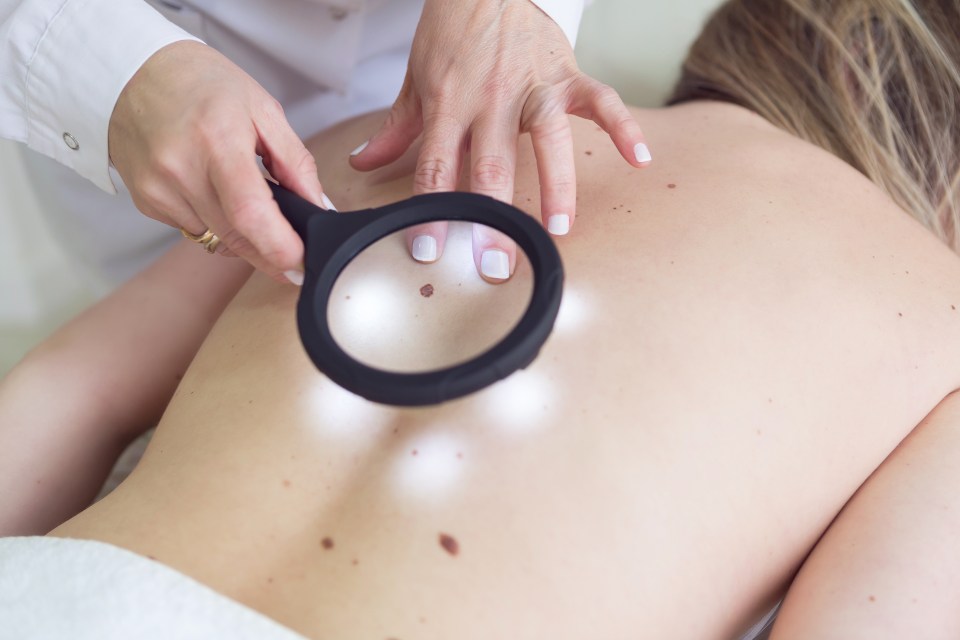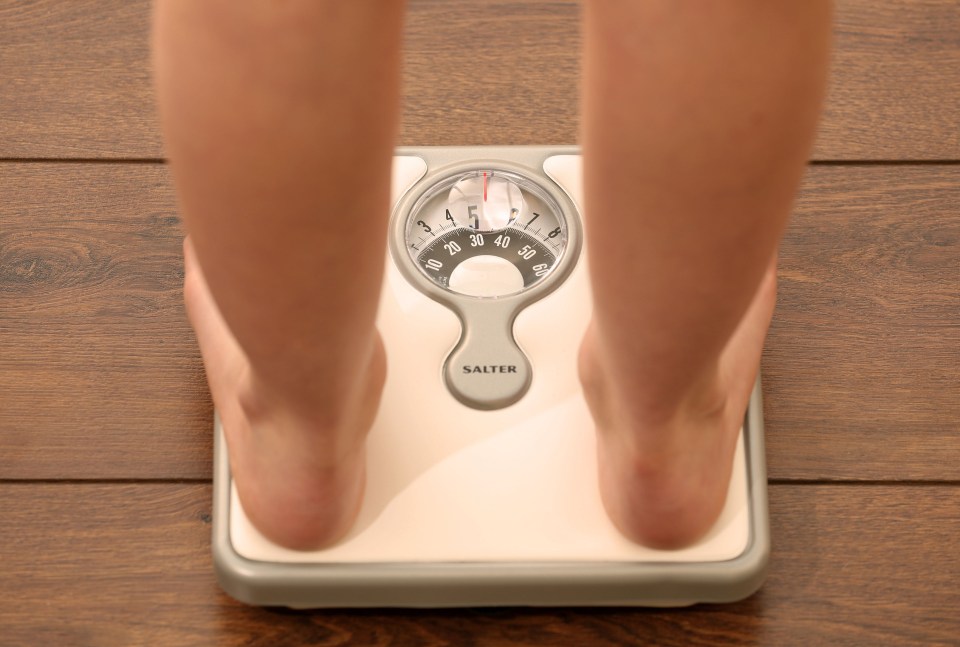THE NHS’s top cancer doctor has revealed 18 cancer symptoms everyone should know, after a survey found that a worrying number of Brits wouldn’t be able to spot red flag signs of the killer disease.
A new NHS survey of 2,000 Brits tested people’s knowledge of common cancer symptoms.
Most respondents had no idea that heartburn and indigestion lasting three weeks or more was something to be worried about, as just 21 per cent recognised it as a possible sign of cancer.
More than half (55 per cent) didn’t know that blood in your wee – even if it just happens once – could be a sign of disease.
Almost half (49 per cent) didn’t recognise unexplained weight loss as a symptom, and more than four in 10 people (42 per cent) didn’t flag an unexplained lump anywhere on the body as a potential sign of cancer.
The NHS advises people to regularly check for any new lumps or unexpected changes in the body to help identify any possible symptoms of cancer.
But the survey found that only four in 10 (39 per cent) Brits look for changes to their bodies at least once every three weeks.
In fact, respondents were more likely to check their bank balance, weather forecast or sports results than give their body a once over for worrying changes.
While most bodily changes are unlikely to be cancer, it’s important to get any new or worrying symptoms checked out by a GP as soon as possible so they can help rule cancer out.
Finding cancer early means it’s easier to treat.
More than 400,000 people are diagnosed with cancer each year in the UK, according to Macmillan Cancer Support.
Breast and prostate cancer tend to be the most common forms of the disease, followed by lung, bowel and melanoma skin cancer.
Cancer Research UK projects that the average number of cancer cases will rise from 420,000 in 2023-2025 to around 506,000 cases in 2038-2040.
The NHS shared 18 red flag cancer symptoms to look out for.
- An unexplained lump anywhere on the body
- A mole that changes colour or shape, or starts itching, crusting, flaking or bleeding
- Blood in your poo – even if you notice it once
- Blood in your pee – even once
- Unexpected or unexplained bleeding e.g., blood when you cough, after sex, after the menopause or between periods.
- A cough that lasts three weeks or more or a change in an existing cough
- A sore or ulcer in the mouth that does not heal for three weeks or more
- Tummy trouble, such as discomfort or diarrhoea lasting three weeks or more
- Feeling tired and unwell and not sure why, for three weeks or more
- Heartburn or indigestion, that lasts three weeks or more
- Unusual, pale or greasy poo
- Unexplained pain or discomfort that lasts three weeks or more
- Being bloated most days, for three weeks or more
- Breathlessness
- Frequent infections
- Unexplained night sweats
- Unexplained weight loss
- Unexpected or unexplained bruising
It advised you contact your GP practice if something in your body doesn’t feel right or you experience any of the above signs or symptoms.
Professor Peter Johnson, national NHS cancer director said: “It is so important to know what is normal for you, although we all find a host of other things to think about rather than checking for any changes in our bodies.
“That’s why I want to encourage everyone to make it a part of your routine – finding a way that works for you might just save your life.
“If you do spot something worrying, get in touch with your GP surgery, who can investigate for you.
“It’s unlikely to be cancer, but if there is something wrong, the earlier it is found, the better the chance of treatment being successful.”
The NHS offers life-saving free screening for cancer to millions of Brits, especially those who may be at higher risk as a result of hereditary or lifestyle factors.
This includes the lung cancer screening programme and liver health programmes which see hi-tech mobile scanning trucks and vans go to shopping centres and supermarket car parks and offer checks to people at increased risk.
‘You know your body best’
Rob McPherson, an amateur football player from Manchester, experienced stomach pain, diarrhoea and nausea.
He was diagnosed with bowel cancer and underwent treatment in 2017.
Rob was able to return to playing football months later and urged people to get checked if they don’t feel right.
Rob said “As a bowel cancer survivor, I would encourage everyone to contact your GP if you notice any unusual changes to your body – for me, it was having persistent stomach troubles for well over three weeks.
“My story shows that cancer can affect anyone no matter how active you are, and you should never put off getting checked if you feel that something isn’t right.
“Remember, you know your body best, so pay attention to any warning signs and get checked as soon as possible if you’re concerned.
Cancer screenings in England
CATCHING cancer early gives you the best chance of survival, and a huge part of that is attending regular screenings.
NHS programmes can help diagnose the disease, or your risk of it, and improve the likelihood of successful treatment.
There are three national screening programmes in England: cervical screening, breast screening and bowel screening.
“If you are eligible, please make every effort to have your screening test as they can detect a problem early, before you have any symptoms. ,” the NHS says.
“Finding out about a problem early can mean that treatment is more effective.”
Cervical screening
This is offered in England to people with a cervix aged 25 to 64 and is routinely carried out every three years up to the age of 49, and every five from 50 to 64.
Depending on the result, people may be recalled earlier.
During a cervical screening, samples are tested for high risk Human Papillomavirus (HPV), which causes nearly all cervical cancers.
Those that test positive are then analysed further.
Breast screening
Breast screenings, which involve an X-ray test called a mammogram that can spot cancers when they are too small to see or feel, are usually offered to women aged 50 to 71 in England.
But the NHS is trialling them for women under 50 if they have a high risk of developing breast cancer.
Bowel screening
This test detects whether patients are showing any early signs of cancer.
It is available to everyone aged 50 to 74, with at-home kits automatically sent out every two years, so make sure your GP has your correct address.
The test involves providing a small poo sample to be checked for tiny amounts of blood, which could be caused by cancer.
If you’re 75 or over, you can ask for a kit every two years by phoning the free bowel cancer screening helpline on 0800 707 60 60.
Source: NHS
Sam Ritchie, an A&E operations manager and single mum of two, noticed a pink rash on her breast in the autumn of 2023.
Sensing that something wasn’t right, she went to see her GP who referred her to a one-stop-breast clinic.
Scans revealed a lump behind her nipple and she was diagnosed with stage three breast cancer in October that year.
The mum began chemotherapy within a matter of months and underwent surgery to remove the tumour in June.
By July, she got the ‘all clear’.
She said: “Being diagnosed with breast cancer came as a huge shock to me.
“However, I am so glad I listened to my body when I felt something wasn’t right and acted quickly.
“I’d urge everyone to not put off getting help if something in your body doesn’t feel right and to contact your GP practice as soon as possible.
“Don’t be afraid to come forward and get the help you need!”


